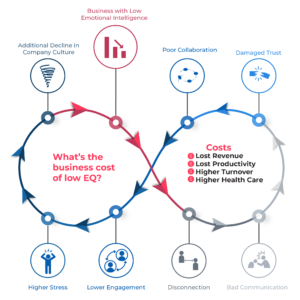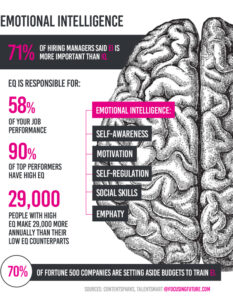by chandiniann | May 7, 2024 | Interesting Reads

Image Courtesy: Medium
In a world that often celebrates transparency and openness, the idea of being an open book is widely promoted as a virtue. We’re encouraged to share our thoughts, feelings, and experiences freely, believing that it fosters trust, authenticity, and deeper connections with others. However, beneath the surface of this seemingly positive trait lies a set of hidden risks and pitfalls that many fail to recognize. In this blog, we’ll explore why being an open book isn’t always a good thing and how it can leave us vulnerable in various aspects of our lives.
Lack of Personal Boundaries
One of the significant drawbacks of being an open book is the erosion of personal boundaries. When we share everything about ourselves without discretion, we expose ourselves to potential exploitation, manipulation, and judgment from others. While vulnerability and authenticity are essential, they should be accompanied by a healthy sense of self-protection. Without clear boundaries, we risk oversharing and allowing others to take advantage of our openness.
“Open” to Misinterpretation
Another downside of being an open book is the potential for misinterpretation. Not everyone may perceive our openness the same way as we do, and what we intend to convey as honesty and transparency may be misconstrued as oversharing or attention-seeking behavior. Constantly revealing too much about ourselves can create misunderstandings and conflicts, and even harm our relationships. It is crucial to Find a balance between genuine sharing and being mindful of the context and appropriateness of what we disclose.
Emotional Exhaustion
Constantly being an open book can also lead to emotional exhaustion. Sharing our innermost thoughts and feelings requires significant energy and emotional labor, especially if we’re met with negative reactions or a lack of understanding from others. Over time, this can take a toll on our mental and emotional well-being, leading to burnout, stress, and feelings of vulnerability. It’s crucial to prioritize self-care and establish healthy boundaries to prevent emotional exhaustion.
Loss of Mystery and Intrigue
Being too much of an open book can also diminish our sense of mystery and intrigue in relationships. While sharing personal information can foster intimacy and connection, leaving some aspects of ourselves private can create a sense of depth and curiosity that keeps others engaged and interested in us. By revealing everything about ourselves upfront, we risk losing the excitement and discovery of getting to know someone slowly over time.
Potential for Exploitation
Finally, being an open book can make us vulnerable to exploitation, particularly where others may seek to take advantage of our openness for their benefit. Whether in personal relationships, professional settings, or online interactions, sharing too much about ourselves without discretion can leave us susceptible to manipulation, coercion, or even identity theft. It’s essential to be mindful of who we trust with our personal information and to exercise caution in what we disclose.
Conclusion
In conclusion, while being an open book has its merits, it’s essential to recognize the associated potential risks and drawbacks. By establishing clear personal boundaries, exercising discretion in what we share, and prioritizing self-care, we can enjoy the benefits of openness while safeguarding our emotional well-being. Ultimately, being authentically ourselves doesn’t mean sharing everything about ourselves indiscriminately but rather choosing wisely what we reveal and to whom.

Image Courtesy: Wallpaper Flare
by chandiniann | May 2, 2024 | Interesting Reads

Image Courtesy: X.com
Introduction
As mentioned in Rolf Dobelli’s insightful work, “The Art of Thinking Clearly,” the concept of social proof has permeated every aspect of our lives, shaping our decisions and beliefs. In today’s hyper-connected world, we often rely on the opinions and actions of others to guide our own choices, assuming that a consensus equates to truth. But is this always the case? Let’s delve into the concept of social proof and explore its limitations.
The Power of Social Proof
Social proof, as elucidated by Dobelli, refers to the phenomenon where people conform to the actions and opinions of others in an attempt to fit in or make decisions. From product reviews to social media likes, we constantly seek peer validation to affirm our choices.
The Illusion of Consensus
However, as Dobelli astutely points out, the prevalence of social proof can sometimes lead us astray, blurring the line between popularity and validity. Just because a belief or idea is widely accepted doesn’t necessarily make it true. The sheer number of people endorsing a viewpoint does not guarantee its accuracy.
Questioning the Majority
Drawing from Dobelli’s insights, history is replete with examples where the majority opinion was wrong. From scientific breakthroughs to societal norms, progress often emerges from challenging the status quo and questioning prevailing beliefs. Blindly following the crowd can stifle innovation and critical thinking.
The Danger of Echo Chambers
In Dobelli’s analysis, in the age of social media, echo chambers exacerbate the problem of social proof, reinforcing existing biases and silencing dissenting voices. Algorithms curate our online experiences based on past behavior, creating an environment where dissenting opinions are filtered out, further entrenching groupthink.
Cultivating Critical Thinking
To combat the pitfalls of social proof, it is necessary to emphasize the importance of cultivating a culture of critical thinking and skepticism. Instead of passively accepting the consensus, we should encourage independent inquiry and evidence-based reasoning. It’s essential to evaluate information critically, regardless of its popularity.
Embracing Intellectual Diversity
True progress lies in embracing intellectual diversity and fostering an environment where dissenting opinions are welcomed and debated constructively. By engaging with differing viewpoints, we expand our understanding of the world and challenge our assumptions.
Conclusion
Rolf Dobelli’s insights shed light on the fallacy of social proof, reminding us that the crowd’s wisdom isn’t always wise. While the masses may sway towards a certain belief or action, it’s crucial to retain our individuality and critical thinking abilities. Overcoming the grip of social proof requires us to develop a keen sense of discernment and independent judgment. Building high emotional intelligence empowers us to resist the pressures of conformity and make decisions based on rationality and authenticity, rather than mere social validation. Connect with me, a practitioner and trainer for Emotional Intelligence, to delve deeper into this crucial skill set and its application in navigating the complexities of modern life.

Image Courtesy: Quora
by chandiniann | May 1, 2024 | Interesting Reads

Image Courtesy: Six Seconds
In today’s fast-paced business world, where financial metrics and quarterly reports often gauge success, the absence of #EmotionalIntelligence (EI) within companies is a glaring concern. As an #EmotionalIntelligencePractitioner witnessing this widespread oversight is disheartening. Despite EI’s pivotal role in fostering resilient and thriving workplaces, its neglect remains pervasive, leaving organizations vulnerable to internal strife and external challenges. This shortsighted approach jeopardizes not only immediate success but also long-term sustainability.
Here’s why:
Productivity Plummets
Roughly 90% of top achievers exhibit strong emotional intelligence, contrasting sharply with a mere 20% of underperformers who demonstrate similar traits. This stark contrast underscores a widely acknowledged truth: Emotional intelligence and soft skills are indispensable for advancing one’s career and achieving success, as affirmed by a majority of employers. When employees understand and manage their emotions effectively, they’re better equipped to handle stress, communicate openly, and collaborate harmoniously. Conversely, teams rife with conflict and emotional volatility suffer from decreased productivity and increased absenteeism.
Talent Drain
In today’s competitive job market, top talent gravitates toward companies that prioritize employee well-being and foster a supportive work environment. Studies reveal that a large portion of employees would leave their current jobs for a company that demonstrates a commitment to employee welfare. Companies that fail to nurture emotional intelligence risk losing their most valuable asset – their people – to competitors who prioritize Emotional Intelligence.
Leadership Lapses
The importance of emotional intelligence in leadership cannot be overstated. Leaders with high EI inspire trust, motivate their teams, and navigate challenges with resilience. Conversely, leaders deficient in Emotional Intelligence are prone to micromanagement, communication breakdowns, and decision-making errors. Not surprisingly, a study by Harvard Business Review found that 71% of managers believe that EI is more important than IQ and technical skills, in leadership roles.
Customer Satisfaction Suffers
Companies that neglect EI not only struggle with internal dynamics but also fail to connect with their customers on a meaningful level. In today’s experience-driven economy, emotional engagement is paramount. Research indicates that emotionally engaged customers are three times more likely to recommend a product or service and remain loyal over time. Without EI, companies risk alienating their customer base and losing market share.
Financial Fallout
The impact of low emotional intelligence extends to the bottom line. According to a study by TalentSmart, EQ accounts for 58% of job performance and is the single biggest predictor of success in the workplace. Conversely, companies with low EI experience higher turnover rates, increased recruitment costs, and diminished profitability. According to The American Institute of Stress, the toll of job stress on U.S. employers surpasses $300 billion every year. This hefty price tag encompasses expenses related to absenteeism, turnover, diminished productivity, and direct expenditures on medical, legal, and insurance matters.
In Conclusion
The evidence is clear – companies that fail to prioritize emotional intelligence are setting themselves up for failure. From decreased productivity and talent drain to leadership lapses and financial fallout, the repercussions of neglecting EI are dire. To thrive in today’s competitive landscape, organizations must recognize the critical role of emotional intelligence and invest in strategies to cultivate it at all levels. After all, in a world driven by human connection and empathy, EQ isn’t just a nice-to-have – it’s a business imperative. Connect with me to uncover the beautiful and impactful world of Emotional Intelligence!

Image Courtesy: Focusing Future






